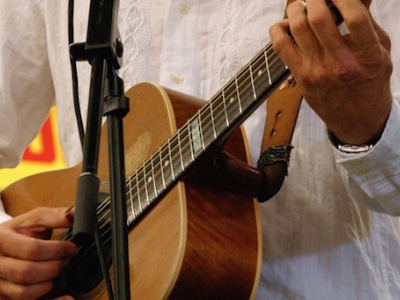
Don’t let Justin Bieber do the parenting
Talking to kids about the music they listen to.
As the old saying goes, ‘You are what you eat’, and it couldn’t be truer in this modern context. We become what we most consume. Today, our youth and children are exposed to countless messages all day long, and this is especially true of music.
An emotive medium
Music is perhaps the catchiest way to send a message because it’s emotive, and it increases the amount of dopamine in our brains. Our brains just can’t help but be driven by music!
Music also seems to be one of the most divisive areas of church life, likely because it is so emotive. There is a constant struggle between the golden oldies of the hymnal, and the modern (often loud) more energetic church songs.
Music engages our hearts in an unparalleled way, so it’s important to work hard at engaging our kids in conversations about the music they choose to listen to. The Bible constantly urges us to meditate on its words and all the good things they teach us:
‘Finally, brothers and sisters, whatever is true, whatever is noble, whatever is right, whatever is pure, whatever is lovely, whatever is admirable – if anything is excellent or praiseworthy – think about such things.’ (Philippians 4:8)
So don’t let Justin Bieber do the parenting!
Find teachable moments at home
Although music is one of the most engaging mediums, we often make very little use of it. Yes, we do sing in church and sing most of our memory verses in kids’ church. However, in a study released last year, Nielsen Music found that Americans (and I imagine Australians are similar) listen to 30+ hours of music per week! Good luck fitting 30 hours of singing into a Sunday service!
Given so much music is consumed each week, parents need to know which songs their kids are playing. Not so long ago, Ed Sheeran’s song ‘The Shape of You’ was the number one played song, followed by Justin Bieber’s version of ‘Despacito’. Underneath the catchy tunes and (in Justin Bieber’s case) Spanish lyrics, both songs are overtly sexual, promoting the idea that physical or sexual attraction is of first importance. During this time, I even heard ‘Despacito’ being played as a school bell in a local primary school!
Parents should have knowledge of their children’s music choices because music is teaching children. A simple question like, ‘What are you listening to at the moment?’ can be a great conversation starter.
Youth group leaders may have more success in sharing suggestions about appropriate music to listen to than parents, especially with teens. They can share their experiences with the music of this current generation, an experience which parents will most likely not have.
Too often teenagers will seek advice from peers, rather than parents. But Deuteronomy 6 is a great reminder that family and home are key places for discipleship. So, parents, don’t wait around for child or teenager to raise an issue. Be proactive in creating situations for conversation. For example, I was encouraged recently when a father in our church shared the way he spoke with his teenage daughter about the songs she was listening to as they looked over the lyrics together.
Invest in Spotify Premium
Media streaming has changed the world and we are accessing more content than ever before. Another way parents can encourage and build up their children is by being an active participant in the process.
For example, you could buy a family Spotify Premium (or similar) account. Not only will you win brownie points with your children for choosing Premium access (streaming without ads), you’ll also maintain control over the process as you are able to have a voice in helping them choose what they listen to. The monthly debits from your account can act as reminders to you to have conversations about the songs they choose. But more than that, you get the benefits of creating playlists, suggesting albums and again, being part of the process.
It’s not about spying on their browsing history, or micromanaging what musicians they are following, but rather inviting yourself into the conversation and being part of the process. Here too, youth leaders can partner with parents in having a youth group or kids’ club playlist. How great would it be to have everyone knowing the songs that complement the Bible teaching!
Communicate!
On this topic (as with many others), it’s helpful to have an ongoing conversation happening between parents and church ministry leaders. Share advice and ideas. We all need to be honest with youth and children about the influence music can have and the importance of being intentional about the music they choose. For younger children, leaders can share the songs they are singing in kids' church and encourage parents to play them on the drive to school. Find some genuine Christian music. There are a surprising number of Christian artists who have left the pipe organ behind!
Friends, music teaches us more theology than we realise. We are what we eat. Let’s consume so much theology that we can’t help but be conformed to the image of Jesus, setting our minds on things above, not on earthly things (Colossians 3:2). Let's use God’s gift of music to help us in that process. What’s the best thing you’ve listened to lately?
This article originally appeared at Youthworks.
---
Josh Ord is Associate Minister at Hoxton Park Anglican Church.

Masterplan
Masterplan is a biblical-theology concept album. It's a musical presentation of the whole story of the Bible, focusing on the centrality of Jesus. Kids, teens, and anyone who isn't too old to rock will no doubt enjoy the immersing music and theology Masterplan has to offer.
For more articles from Growing Faith, subscribe to our monthly e-newsletter.
To hear about the latest books and resources from Youthworks Media, subscribe here.








